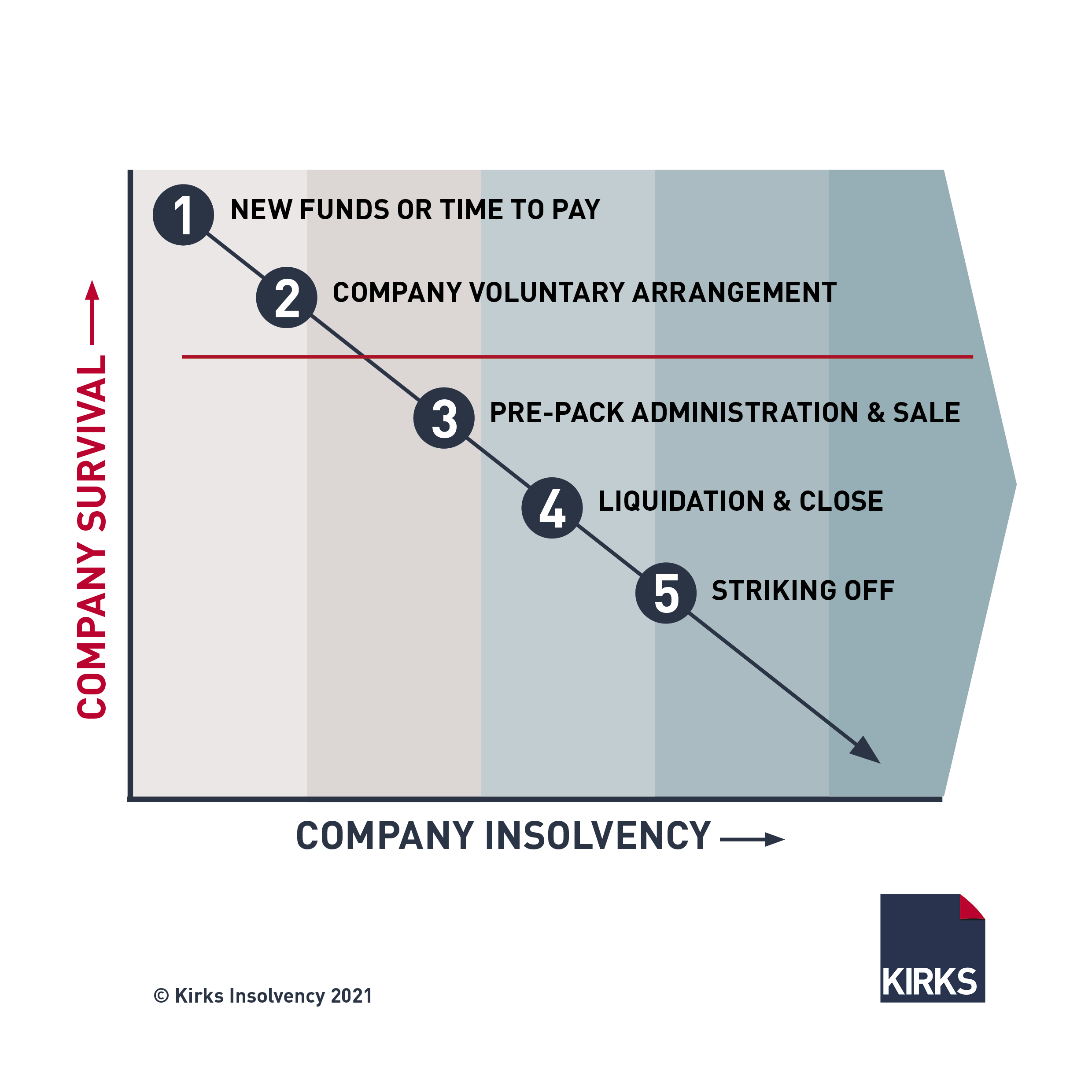Insolvency Practitioner Fundamentals Explained
Insolvency Practitioner Fundamentals Explained
Blog Article
3 Easy Facts About Insolvency Practitioner Described
Table of ContentsThe Ultimate Guide To Insolvency PractitionerThe 9-Minute Rule for Insolvency PractitionerExcitement About Insolvency PractitionerSome Ideas on Insolvency Practitioner You Need To KnowInsolvency Practitioner - Truths6 Simple Techniques For Insolvency PractitionerExcitement About Insolvency Practitioner
Insolvency is when liabilities are better than the worth of the business, or when a borrower can not pay the financial debts they owe. A company can come to be financially troubled because of a number of scenarios that result in poor capital. When confronted with insolvency, a company or person can call financial institutions directly and restructure financial obligations to pay them off.
Company owners may contact lenders directly and restructure financial debts right into more workable installments. Lenders are commonly open to this strategy since they desire to be settled and prevent losses, even if the settlement is on a postponed routine.
The owner creates a proposal outlining just how the financial debt may be restructured using expense decreases or various other strategies for assistance. The proposal reveals creditors exactly how business might generate enough cash money flow for rewarding procedures while paying its financial debts. Generally, a forgiven debt may be taken into consideration revenue by the Irs (INTERNAL REVENUE SERVICE).
Not known Facts About Insolvency Practitioner
When a business needs to pay boosted prices for products and services, the business passes along the price to the consumer. As opposed to pay the boosted cost, lots of consumers take their business somewhere else so they can pay less for a product or solution. Losing clients leads to shedding revenue for paying the company's creditors.
Business might wind up paying large amounts of money in problems and be overcome operations. When procedures discontinue, so does the firm's income. Absence of income results in unpaid expenses and lenders requesting cash owed to them. Some firms become bankrupt because their goods or services don't progress to fit customers' transforming demands.
Our Insolvency Practitioner PDFs
Expenses go beyond incomes and bills remain unpaid. Types of insolvency include cash-flow bankruptcy and balance-sheet insolvency. Cash-flow insolvency happens when a business has the possessions to cover their financial obligations yet they remain in the incorrect form, such as property instead of liquid funds. Balance-sheet bankruptcy, on the various other hand, indicates an absence of assets in any type of kind to cover debts.
The internal revenue service states that an individual is insolvent when the total obligations exceed total possessions. Insolvency Practitioner. A insolvency, on the various other hand, is an actual court order that depicts just how a financially troubled person or service will pay off their financial institutions, or just how they will sell their properties in order to make the repayments
The Best Strategy To Use For Insolvency Practitioner
When a company or individual is bankrupt, they can not satisfy their economic commitments. Bankruptcy is not the very same as insolvency, although a company that has become insolvent might submit for bankruptcy. Bankruptcy is the state of not being able to pay your commitments while bankruptcy is a legal process to release your debts.
Comprehending the aspects that can lead to bankruptcy, such as overspending, can help you stop bankruptcy and its effects.
3 Easy Facts About Insolvency Practitioner Shown
It is popular that directors and policemans of corporations (and managers of minimal obligation firms) owe fiduciary responsibilities to their organizations and their investors (or participants). These fiduciary why not check here obligations are defined by state visit this site right here laws and, though there are variations from one state to another, they generally consist of an obligation of commitment and an obligation of treatment.
The duty of care needs directors and police officers to work out persistance, to make educated decisions, and to act in excellent confidence to ensure that their actions remain in the very best rate of interest of the company. Though past the scope of this conversation, some states enable these responsibilities to be restricted either by so noting in the business documents or following various other demands.
Insolvency Practitioner Fundamentals Explained

Take care regarding providing shareholders favoritism at the cost of creditors (e.g., licensing and moneying a returns or a stock redemption). Beware concerning preferential treatment between courses of shareholders. Clear up initiatives to find out all the facts before taking a certain strategy; directors ought to truly think that any type of decisions made are in the best interests of the corporation in its whole (i.e., decisions will be assessed in hindsight due to the impact of such actions on the firm).
In any personal bankruptcy or bankruptcy proceeding, payments made to certain lenders at the cost of other financial institutions can be clawed back, specifically if there is some connection between the company and the financial institution. Consider recommending at a yearly shareholder conference (or any kind of other meeting of investors) a resolution verifying that all previous company decisions and actions taken by the Check This Out directors and officers of the company were absorbed excellent confidence after an exercise of practical treatment.
Unknown Facts About Insolvency Practitioner
Completely disclose any kind of personal or business relationships with parties on the other side of transactions involving the corporation to prevent the look of a dispute of passion. In evaluating possible fund increasing purchases or a sale of possessions of the troubled company, realize that these transactions may be looked at later on due to any kind of succeeding development of supervisors' fiduciary responsibilities to include lenders.
Report this page